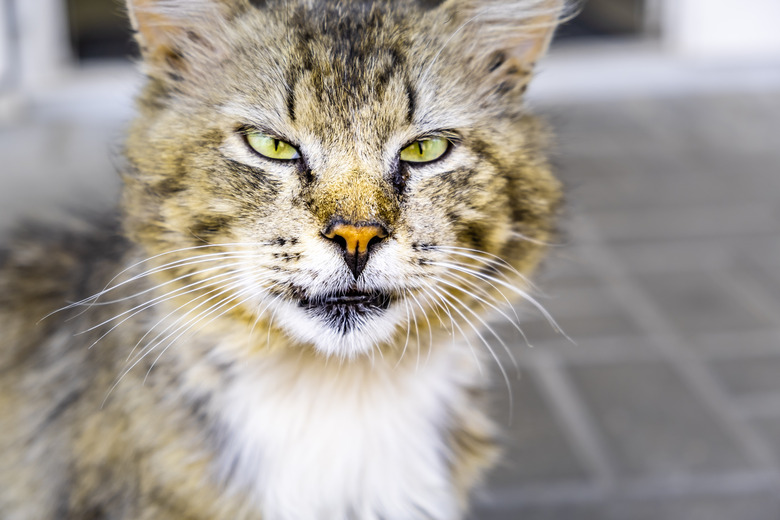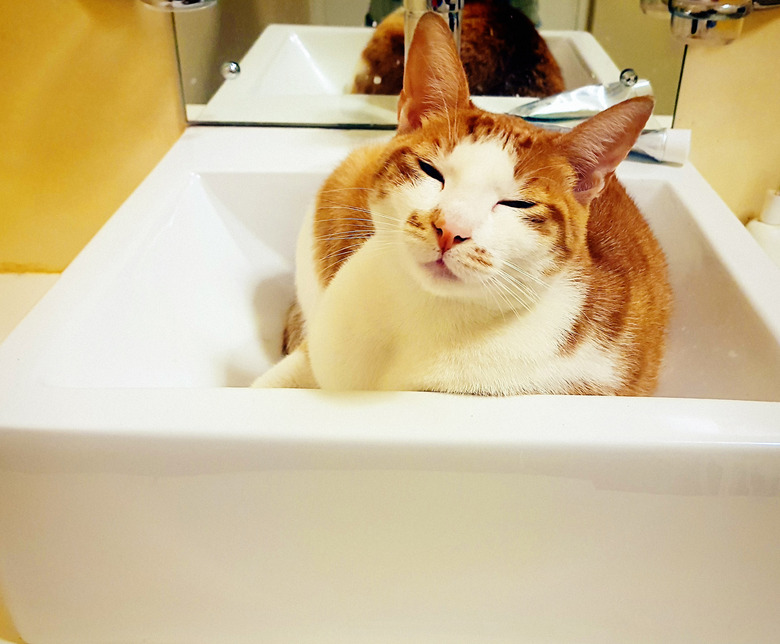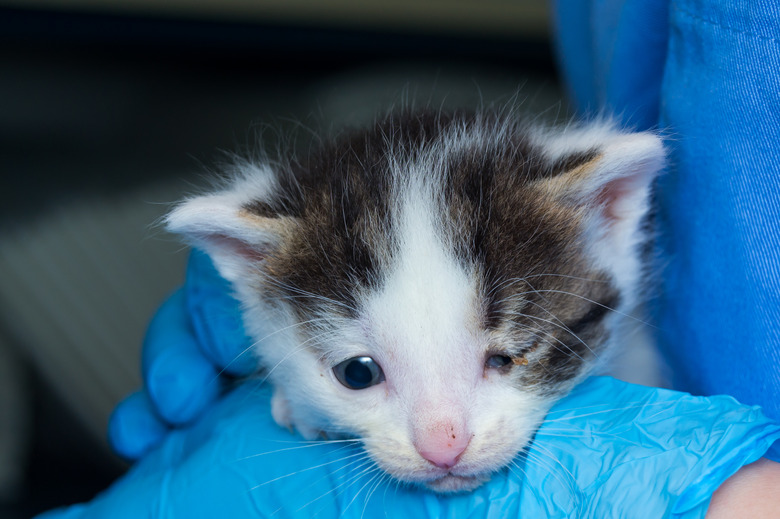Why Is My Cat Squinting?
Picture this: you're seated in your favorite comfortable chair enjoying an engaging book, or, and this may possibly be more accurate, bouncing to and from those go-to apps you almost compulsively visit. Suddenly, you feel a presence nearby, as if something is watching you... before looking off to your side to find that your cat is definitely watching you. It's not uncommon to find our feline friends gazing upon us, either with the wide-eyed hope of affection, or the perceived indifference of a judgmental glare. Sometimes, our cats may even seem to be squinting at us, which can mean a number of things, from contentment to conjunctivitis, depending on the cat.
Reading your cat’s eyes
Reading your cat's eyes
Cats use nearly every part of their bodies to communicate with each other and the people around them. Laid back ears may be an indicator to back off, while a straight, upright tail generally represents a happy and friendly feline. Cats also use their eyes to communicate. For example, a squinting cat may simply signify a contented and relaxed cat, says South Kendall Animal Hospital in Miami, Florida. Cats are known for using their eyes to offer what's called a "slow blink," which looks exactly how it sounds — a slow, exaggerated blinking of the eyes. If you see a healthy cat lying around with her eyes half closed or squinting, it usually means that she is comfortable and trusting of her surroundings.
A cat's pupils can also say a lot about her mood. Large, dilated pupils generally mean that your cat is alert. This could be because she is nervous about something, or it could just mean that she's feeling pouncy and playful. Smaller pupils usually occur when your cat is focused on something, and is often associated with a less-than-friendly mood. If you notice that your cat has constricted pupils, give her some space as she may be feeling agitated or aggressive.
Possible health issues
Possible health issues
While squinting can sometimes mean a laid-back cat, it can also be a sign that something is wrong and may require medical intervention. Before you panic, Banfield Pet Hospital recommends looking for signs that your cat may have something stuck in his eye, like dust, dirt, or grass. These symptoms include pawing at the eye area, rubbing his face on the ground or other surface, increased tear production, and of course, excessive squinting. If you think your cat may have something stuck in his eye, you can try flushing the eye with saline solution, which will hopefully remove the foreign object. If your cat won't let you flush his eyes, take him to a veterinarian for an exam, especially if the eye becomes swollen.
Conjunctivitis, or, inflammation of the eye membrane, can be another reason your cat is squinting. According to Animal Eye Care, conjunctivitis can be a stand-alone illness, or it may be found in tandem with other corneal diseases, like a corneal ulcer or keratitis. Conjunctivitis is usually indicated by squinting of the eyes, along with a mucus-like discharge coming from the eyes. A cat with conjunctivitis may also have an eye color that's cloudier than usual, but this issue is often easily treated with antibiotic creams or eye drops.
When to be concerned
When to be concerned
If you notice that your cat is squinting and to the point that she has trouble opening her eyes, a visit to the veterinarian is highly recommended. Debris left inside of a cat's eye can lead to a scratched cornea, and persistent discomfort is associated with all ocular health issues. Additionally, conjunctivitis can be a sign of another health issue, like Feline Herpesvirus 1, Feline Chlamydia, Mycoplasma, any of which are known for being the most common causes of the eye disease. Eye problems in cats can lead to blindness if left untreated, so stay on the safe side and schedule a visit with your cat's vet if you notice persistent squinting, tearing, or eye rubbing. Some additional signs of eye problems to look out for include drooping eyelids, green or yellow discharge coming from the eyes, and an elevated third eyelid, explains VCA Hospitals.
Always check with your veterinarian before changing your pet's diet, medication, or physical activity routines. This information is not a substitute for a vet's opinion.


